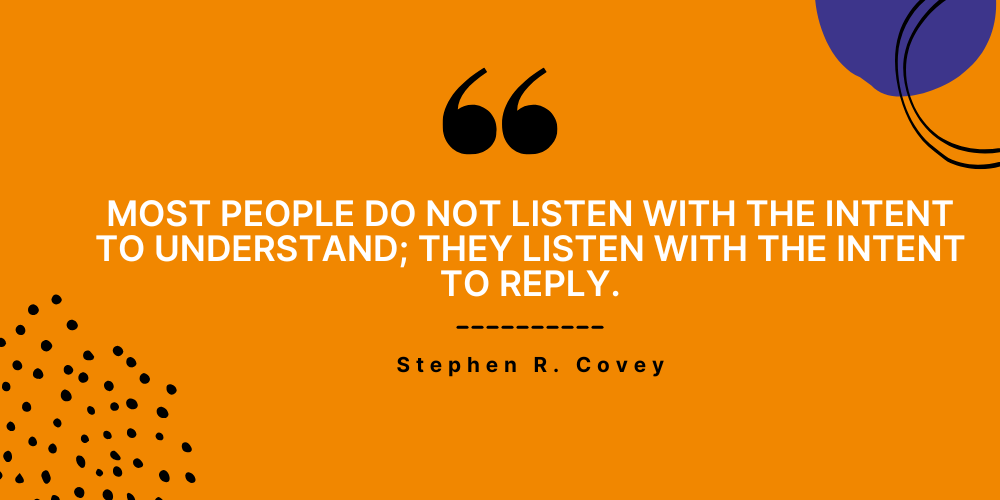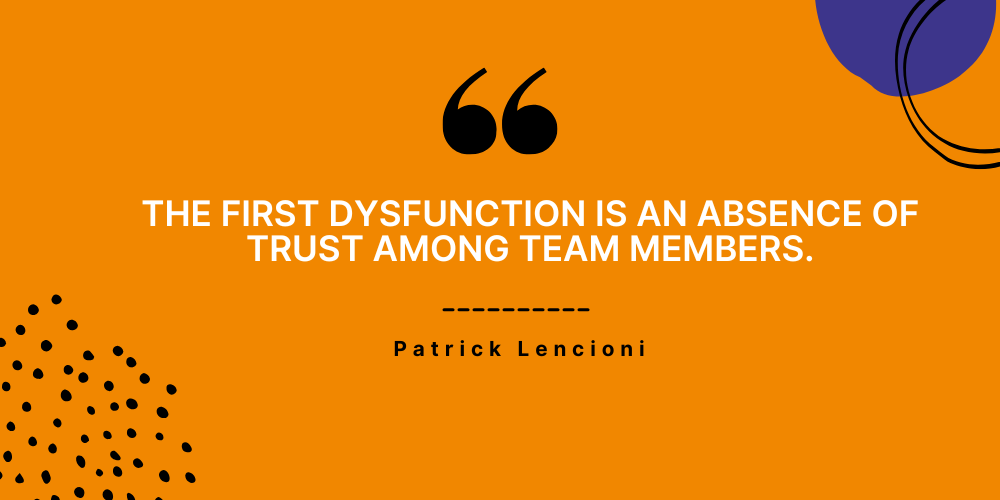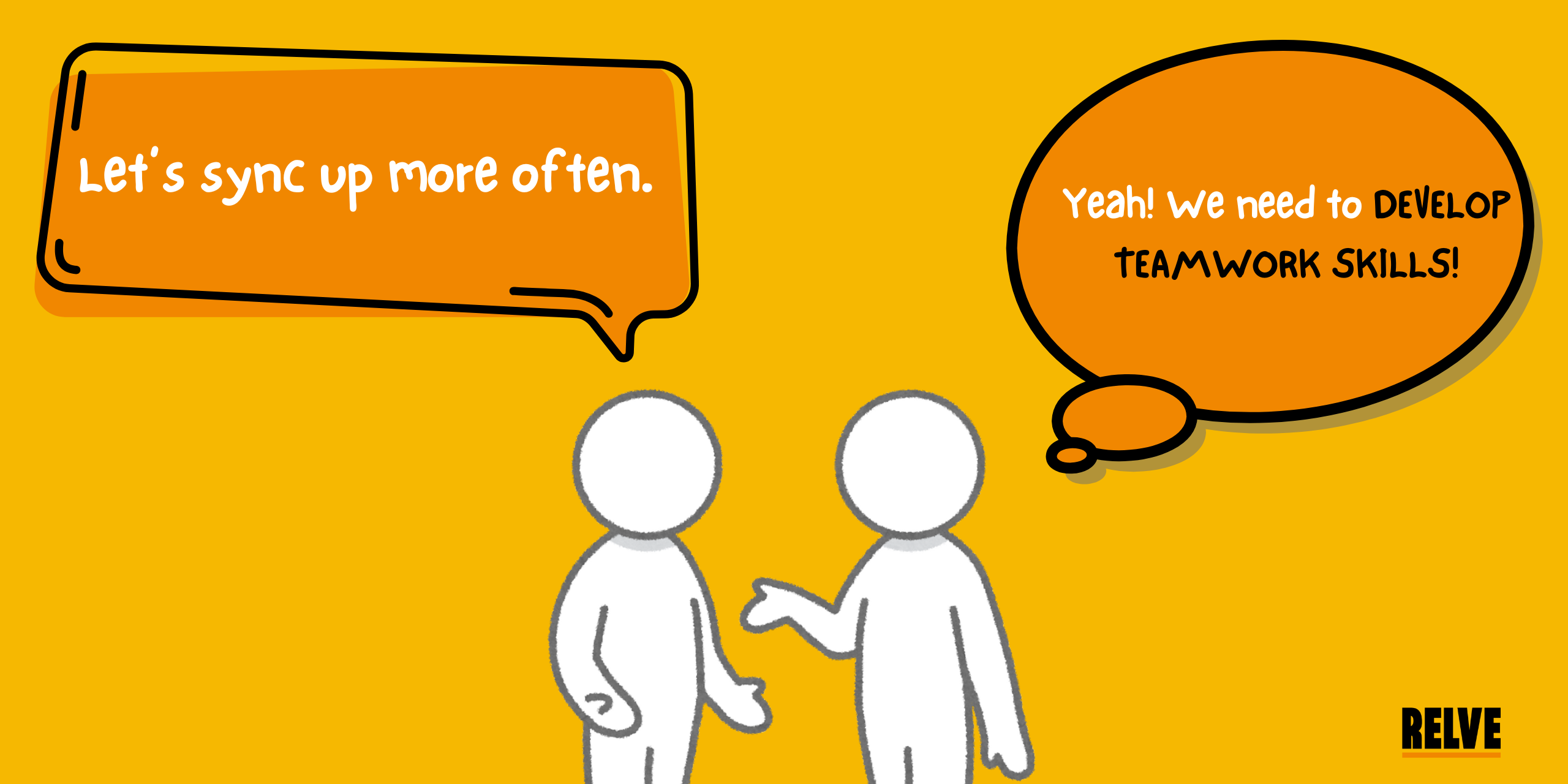Great teamwork doesn’t happen accidentally, so start learning to develop teamwork skills today!
Picture this: You’re in a team meeting, and Bob (every workplace has a Bob) hijacks the discussion, talking in circles. Meanwhile, Sarah is furiously taking notes, Jake is pretending to listen but scrolling Instagram, and you? You’re just trying to survive.
Sound familiar? Well, congratulations – you’ve officially experienced teamwork.
But real teamwork isn’t just about putting people in a room together and hoping for the best. It’s about building teamwork skills that transform a group of individuals into a powerhouse of productivity.
Let’s dive into real, actionable techniques that help you become a teamwork pro.
1. Understanding How to Develop Teamwork Skills and Why It Matters
Before we start throwing around tips and strategies, let’s clarify what teamwork actually means. Because let’s be honest—sometimes, it’s just chaos with a deadline.
What Is Teamwork, Really?
According to Bradley L. Kirkman & T. Brad Harris, authors of 3D Team Leadership, successful teams don’t just “work together” – they “align, adapt, and accelerate” through strategic coordination. That means:
- Alignment: Everyone understands the goal and their role in achieving it.
- Adaptability: The team can pivot when challenges arise.
- Acceleration: Teams move fast, but with intention, not like a runaway train.
In short, teamwork isn’t just collaboration – it’s synchronized collaboration.
Why Learning How to Develop Teamwork Skills is Essential in Today’s Workplace
Hot take: If you’re still working solo and avoiding teamwork, you’re setting yourself up for failure.
The modern workplace thrives on collaboration. Numerous studies have shown that organizations with a strong teamwork culture experience higher innovation, efficiency, and employee engagement.
For instance, a study by Gallup found that highly engaged teams show 21% greater profitability than their disengaged counterparts.
Even Jeff Bezos, the mastermind behind Amazon, swears by the “Two-Pizza Rule” – if a team is too big to be fed with two pizzas, it’s too big to function effectively.
2. The Key Components of Strong Teamwork

Teamwork is more than just “playing well with others.” It’s about mastering key skills that make collaboration seamless and effective.
Communication: The Glue That Holds Teams Together
Ever played a game of telephone? You know, where one person whispers a message to the next, and by the end, “We need more clients” turns into “Feed four lions”? That’s bad teamwork communication in a nutshell.
Patrick Lencioni, in The Five Dysfunctions of a Team, emphasizes that the #1 cause of dysfunctional teams is a lack of trust, fuelled by poor communication. His advice?
- Be radically transparent: Say what you mean and mean what you say.
- Encourage open feedback: No one should be afraid to ask questions.
- Use the “Yes, and…” technique: Instead of shutting ideas down, build onto them.
Action Step: In your next team meeting, ban the phrase “That won’t work.” Instead, ask: “How can we make this work?”
🧠 How Strong Is Your Team Communication?
1. A teammate pitches a risky idea. You:
2. Someone misunderstands your feedback. You:
3. Your colleague makes a mistake. You:
Active Listening: The Secret to Not Being THAT Annoying Co-Worker
If communication is the glue, listening is the nail that holds the structure together.
Ever had someone nod while looking at their phone while you’re speaking? Infuriating, right? Active listening is about actually absorbing what’s being said.
Most workplace conflicts don’t come from what’s said, but from what’s misunderstood.
Try This Technique
Next time someone speaks…
Use “Reflect & Clarify”
Reflect & Clarify
“So what I’m hearing is…”
Follow up: “How do you think we can make that happen?”
Trust & Reliability: The Foundation of Great Teams
No one likes working with a flaky, unreliable team member. You know, the one who says:
- “I got it!” …but forgets to do it.
- “Sorry, I was super busy.” (Translation: I played Call of Duty all night.)
- “Let’s circle back.” (Spoiler: They never do.)
How to Build Trust in a Team:
- Show up and do what you say you will.
- Own your mistakes (no one trusts a blame-shifter).
- Give credit where it’s due – don’t hog the spotlight.
Adaptability: A Must-Have When Learning How to Develop Teamwork Skills

If 2020 taught us anything, it’s that plans change – fast. And if you can’t adapt, you’ll be left behind.
In Beyond Team Building, Jeffrey H. Dyer explains that high-performing teams embrace uncertainty. They know that the best ideas come from flexibility, not rigidity.
Conflict Resolution: Learning to Disagree Without a WWE Smackdown

Team conflicts are inevitable. The real question is: Do you handle them like a leader – or like a reality show contestant?
How to Disagree Without Destroying the Team:
- Stick to facts, not emotions—state what’s wrong without making it personal.
- Seek to understand first—before jumping in with “You’re wrong.”
- Find common ground—start with what you agree on before addressing the conflict.
3. How to Develop Teamwork Skills in Yourself
Before expecting others to be great team players, you’ve got to develop teamwork skills in yourself first. Think of it like being on an airplane – secure your own oxygen mask before helping others.
Become an Active Listener (Seriously, Just Listen!)
Ever caught yourself mentally drafting a response before the other person even finishes talking? That’s not listening – that’s waiting for your turn to speak. Real listening isn’t about responding faster; it’s about truly understanding what’s being said.

How do you actively listen?
- Pause before responding—give their words a second to sink in.
- Ask clarifying questions—this makes the speaker feel heard.
- Summarize what they said—try: “So what I’m hearing is…”
Master Clear and Respectful Communication
Ever received a vague Slack message like: “Hey, can we talk?” That’s a stress-inducing nightmare. Clear communication eliminates confusion and fosters better collaboration.
- Be direct but kind: No passive-aggressiveness (“Per my last email…”).
- Use positive framing: Instead of “That’s wrong,” try “Here’s another way to look at it.”
- Pick the right medium: Some things are best said over video calls, not emails.
Quick Hack: Next time you message a colleague, re-read your message from their perspective before sending it.
Develop a Problem-Solving Mindset
Good team players don’t just point out problems – they offer solutions.
- Instead of “We have an issue,” say “Here’s a challenge I’ve noticed and a few ways we might solve it.”
- Be flexible – sometimes the best solution isn’t your idea.
Own Your Mistakes and Learn from Them
Nothing kills teamwork faster than a blame game. Own your mistakes and move on.
- Say “I messed up, here’s what I’ll do differently next time.”
- Never throw a teammate under the bus – it ruins trust instantly.
- Help others recover from mistakes instead of shaming them.
4. How to Develop Teamwork Skills in the Workplace
Okay, now that you’re a teamwork pro-in-training, how do you build teamwork skills across your entire workplace?
Foster Open Communication (Yes, Even the Awkward Stuff)
People shouldn’t feel afraid to ask for help, admit mistakes, or give honest feedback.

- Encourage feedback loops: Ask, “What’s working well?” and “What can we improve?”
- Hold non-judgmental brainstorming sessions: No ideas are stupid (except for maybe “Let’s turn the office into a ball pit.”)
- Make sure EVERY voice is heard—not just the loudest ones.
Define Clear Roles & Responsibilities
Ever been in a group project where one person does all the work while the others just vibe? Yeah, don’t let that happen at work.
- Clearly define who is responsible for what from the start.
- Use project management tools to track progress.
- Check in regularly to make sure no one is overwhelmed (or slacking).
Use Team-Building Activities That Aren’t Cringe-Worthy
No one wants to fall backward into their coworker’s arms at a trust fall retreat. Try team-building activities that actually work:
- Problem-solving challenges (escape rooms, hackathons, business simulations).
- Casual bonding activities (team lunches, coffee chats).
- Collaborative learning (workshops where employees teach each other skills).
Recognize and Reward Team Efforts
Nothing kills morale like only rewarding individual contributions. If teamwork is a priority, recognize it.
- Give shoutouts in meetings for great teamwork moments.
- Offer team-based incentives (bonuses, extra days off).
- Create a team appreciation board where employees recognize each other.
5. How to Develop Teamwork Skills While Overcoming Common Challenges
Even with the best intentions, teamwork isn’t always smooth sailing. Let’s tackle some common challenges and how to fix them.
How to Develop Teamwork Skills While Tackling Poor Communication
- “I thought you were handling that?”
- “Wait, when was the deadline?”
- “Oh, I didn’t see that email…”
Solution:
- Implement weekly team check-ins to clarify priorities.
- Use collaboration tools like Slack, Notion, or Monday.com.
- Follow the “One-Message Rule” – if it takes more than one message to explain, hop on a quick call instead.
Problem: Conflict Among Team Members
A little healthy debate is great for innovation, but personal conflicts? Not so much.
Solution:
- Address issues early before resentment builds.
- Encourage open, respectful discussions (use phrases like “Help me understand…”).
- Find common ground – you’re on the same team, after all.
Problem: Unequal Work Distribution
If one person is drowning in tasks while others have free time, it creates frustration and burnout.
Solution:
- Use workload management tools (Jira, ClickUp).
- Have regular workload balancing discussions.
- Encourage team members to speak up when overwhelmed.
How to Develop Teamwork Skills and Keep Teams Engaged & Motivated
- Meetings feel lifeless.
- People aren’t excited about projects.
- Turnover is high.
Solution:
- Give teams more ownership over decisions – micromanaging kills motivation.
- Make work meaningful – tie projects to real-world impact.
- Celebrate wins – small victories keep momentum high.
6. Leadership’s Role in Building a Team-Oriented Culture
If teamwork is the engine, leadership is the fuel. A team can only thrive if leaders create the right conditions for collaboration, trust, and shared success.
Ever worked under a boss who says, “We’re a team!” but takes credit for all the work? Yeah – that’s NOT leadership.
Lead by Example (No One Follows a Hypocrite)
Want a strong team culture? Live it first.
- Show vulnerability—admit when you don’t know something.
- Collaborate—don’t just delegate and disappear.
- Demonstrate emotional intelligence – handle conflict with calmness and fairness.
Empower Teams to Make Decisions
A micromanaging leader kills creativity. Give your team autonomy, and they’ll step up.
- Delegate meaningful tasks—not just the boring stuff.
- Encourage independent thinking—ask, “What do you suggest?”
- Trust, don’t babysit—check in, but don’t hover.
Quick Hack: Instead of saying “Do this”, try: “How would you approach this problem?”
Recognize and Reward Collaboration
If only individual achievements are celebrated, teamwork dies. Make sure success stories highlight team efforts, not just star players.
- Publicly acknowledge team wins in meetings.
- Offer team-based incentives – bonuses, extra time off.
- Create a culture of peer recognition – shoutouts from colleagues.
7. The Role of Technology in Enhancing Teamwork
Teamwork isn’t just about face-to-face interaction anymore. With hybrid work and global teams, technology has become a key player in making collaboration seamless.
Managing Remote and Hybrid Teams
Working remotely doesn’t mean teamwork disappears. But it does mean you need intentional strategies.
- Set clear expectations—who’s working on what, and when?
- Encourage async communication—not everything needs a Zoom call.
- Use digital whiteboards (Miro, MURAL)—visual collaboration boosts engagement.
AI & Automation: The Future of Teamwork
AI isn’t replacing teamwork – it’s enhancing it. Smart teams use AI to streamline tasks so humans can focus on creativity and problem-solving.
- ChatGPT for brainstorming & content ideas.
- AI-driven analytics for tracking team productivity.
- Automated reporting to eliminate repetitive tasks.
Quick Hack: Use AI for efficiency, not as a crutch. Human judgment still matters.
8. Psychological Safety: The Secret Ingredient of Effective Teams
Psychological safety is the magic sauce that makes teams thrive. Without it, people won’t speak up, share ideas, or take risks.
What is Psychological Safety?
It’s the belief that you won’t be punished or embarrassed for speaking up, asking questions, or making mistakes. Without it, innovation dies.
Quick Test: Ask your team, “Do you feel safe challenging an idea in this meeting?” If the answer is no, you have a problem.
How to Develop Teamwork Skills by Building Psychological Safety in Teams
- Encourage open dialogue – welcome different perspectives.
- Normalize learning from failure – replace “Who messed up?” with “What can we learn?”
- Model vulnerability as a leader—admit when you’re wrong.
Quick Hack: Start meetings with “wins and lessons” – what went well and what we learned.
9. Actionable Strategies for Long-Term Teamwork Development
Building teamwork skills isn’t a one-time thing—it’s an ongoing process. The best teams don’t just happen; they’re built, refined, and continuously improved.
Let’s break down practical, long-term strategies to keep your teamwork game strong year after year.
Make Teamwork a Core Part of Your Culture
If teamwork isn’t embedded into the DNA of your organization, it won’t last. Successful teams don’t see teamwork as an “extra” but as a default.
- Encourage collaboration from day one – teamwork should be part of onboarding.
- Set clear expectations—make teamwork a performance metric.
- Foster a mindset shift—it’s not about individual wins, it’s about team success.
Implement Ongoing Training & Development
Even the best teams need continuous learning. Whether it’s leadership workshops, conflict resolution training, or cross-functional projects, teams must keep evolving.
- Host regular teamwork workshops—practical sessions, not just theory.
- Invest in leadership development—great teams need great leaders.
- Encourage cross-team collaboration—let different teams learn from each other.
Quick Hack: Rotate team members on projects to expose them to different work styles.
Create Feedback Loops That Actually Work
The best teams give and receive feedback constantly. Not just once a year in a performance review.
- Use real-time feedback tools (like 360-degree reviews).
- Normalize constructive criticism – it should be seen as helpful, not personal.
- Teach how to give & receive feedback – because not everyone knows how.
Measure Teamwork Success
How do you know if your teamwork strategies are actually working? By tracking the right indicators.
- Employee engagement surveys—do people feel valued in the team?
- Team project completion rates—is work being done efficiently?
- Turnover rates—do employees leave because of poor team dynamics?
Quick Hack: If teamwork metrics aren’t improving, go straight to the source. Ask your team: What’s one thing we can do to improve collaboration?”
The Future of Teamwork is YOU
By now, you’ve got a toolkit of strategies to master teamwork skills, foster collaboration, and build trust. But here’s the truth:
Teamwork isn’t a skill you “master” once – it’s a lifelong process.
No matter where you are in your career—whether you’re a fresh graduate trying to find your place in a team, a mid-level professional managing multiple projects, or a leader responsible for an entire organization – your ability to build teamwork skills will shape your success.
